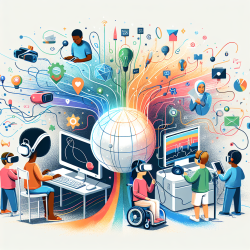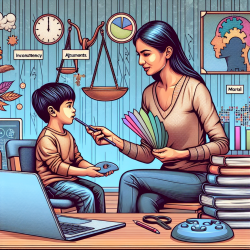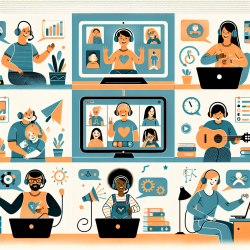Introduction
In the realm of special education, the quest for effective, inclusive, and personalized solutions is ongoing. As advocates, we are continually exploring avenues that promise enhanced outcomes for children. One such promising avenue is virtual therapy, a data-driven approach that is redefining how therapy services are delivered to schools.
The Rise of Virtual Therapy
Virtual therapy, particularly in the context of special education, offers a unique blend of accessibility and efficiency. This model is designed to cater to the diverse needs of children, including those with Individualized Education Programs (IEPs). The shift towards online therapy services is supported by a growing body of research, highlighting its effectiveness in achieving measurable outcomes.
Data-Driven Decisions in Therapy
One of the most compelling aspects of virtual therapy is its foundation in data-driven decision-making. By leveraging technology, therapists can collect, analyze, and utilize data to tailor therapy sessions to the individual needs of each child. This approach ensures that interventions are not only evidence-based but also highly personalized.
Benefits of Virtual Therapy
- Accessibility: Virtual therapy eliminates geographical barriers, ensuring that children in remote or underserved areas have access to quality therapy services.
- Flexibility: Online platforms allow for flexible scheduling, accommodating the varied routines of children and families.
- Engagement: Interactive tools and resources used in virtual therapy sessions can enhance engagement, making learning both effective and enjoyable.
- Progress Tracking: The digital nature of virtual therapy enables precise tracking of a child's progress, facilitating timely adjustments to therapy plans.
Virtual Therapy and IEPs
For children with IEPs, virtual therapy offers a customized approach that aligns with their specific goals and objectives. By integrating technology into the therapy process, therapists can ensure that each session is focused on achieving the outcomes outlined in a child's IEP.
Taking the Next Step
As advocates for special education, it is imperative to embrace innovative solutions that promise better outcomes for children. Virtual therapy represents a forward-thinking approach that aligns with the needs of modern education systems. By taking the next step to integrate these services into schools, we can ensure that every child receives the support they need to thrive.
To learn more about how virtual therapy can benefit your school or advocacy group, and to explore potential collaborations, please reach out to us at TinyEYE. Together, we can create a future where every child has the opportunity to succeed.










